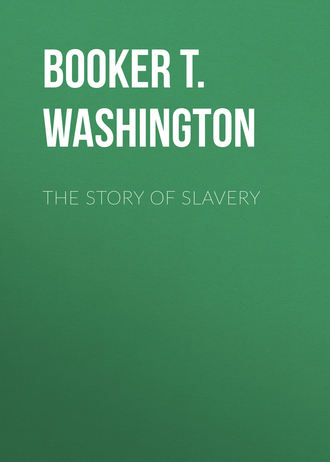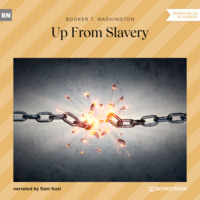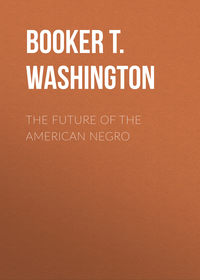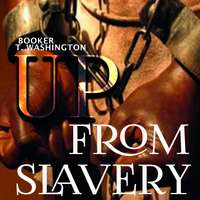 полная версия
полная версияThe Story of Slavery
It should be remembered, also, in the case of these white bond servants, as in that of the Negro slaves, the sale of human beings began innocently enough. At the time the English colonies were planted in America there was comparatively little free labor anywhere, and especially was this true of farm labor.
The freedom and independence which seem now to be the natural rights of everyone were enjoyed by very few among the masses of the laboring people in Europe one hundred or two hundred years ago. At that time nearly everyone who worked with his hands was bound, in one way or another, to a master who had control over his actions to an extent which amounted to something like servitude. But it was to the man on the soil and in the country that freedom has everywhere come most slowly. In fact, it was not until the middle of the last century that the complete emancipation of the serfs took place in Western Europe. It was not until 1861, two years before Abraham Lincoln's Emancipation Proclamation set the American Negroes free, that the Russian serfs were emancipated.
It is necessary to remember these facts if we wish to understand how it came about that the slavery of the black man and the servitude of the white man came to be established in this country.
When the first bond servants were sent to America it was not intended that they should be transferred and sold from one owner to another. It was merely intended that they should be bound to labor for the man who paid their passage money until that sum had been repaid. Gradually, however, in their eagerness to obtain labor, people lost sight of the fact that the merchandise they were selling was human beings. It was not long, therefore, before the bond servant was rated among the other property, the horses, the sheep and the cattle, in the inventories of the estate, and he could be disposed of by will and deed along with the remainder of the stock on the plantation.
At first the only legal distinction between the bond servant and the Negro slave was that the one was a servant for a period of years and the other was a servant for life. In the long run, however, this distinction made a great difference. In the first place, as the number of these bond servants who became free increased there grew up in the colonies a considerable body of citizens who had known the trials and hardships of servitude. These people naturally sympathized with those of their own class and this created a sentiment against white servitude.
The case of the Negro, however, was different. He was a man of a different race and he was doomed to perpetual servitude. The result was, as time went on, it came to be regarded as the natural vocation and destiny of the man with the black skin to be the servant and the slave of the white man.
One thing that helped to fix the status of the black man, and which finally resulted in the passing away of white servitude in favor of Negro slavery, was the fact that the Negro was better fitted to perform the hard pioneer work which the time demanded. Particularly was this true in the more Southern colonies, like Georgia and the Carolinas.
In South Carolina an effort had been made to reestablish serfdom as it had existed in England one hundred years before. In Georgia, it was at first hoped, by prohibiting slavery to establish a system of free labor. In both instances the effort failed and, after a very few years, Negro slavery was as firmly established in Georgia as it had been in the neighboring state of South Carolina.
Still later, efforts were made to establish white servitude in Louisiana and large numbers of German "redemptioners," as they were called, were brought over for this purpose. In a very few years these colonists had been swept away by disease.
In one of the reports setting forth "the true state" of the colony of Georgia it was said that, "hardly one-half of the servants of working people were able to do their masters or themselves the least labor: and the yearly sickness of each servant, generally speaking, cost his master as much as would have maintained a Negro for four years."
With the introduction of rice planting the necessity of employing Africans was doubled, because, as it was said, "white servants would have exhausted their strength in clearing a spot for their own graves."
Thus it came about that Negro slavery grew up on the mainland to replace the servitude of the white man, just as it had grown up in the West Indies to take the place of the slavery of the native Indians.
It most not be assumed, however, that the Negro slaves, because they were better able than the white man to stand the hardships of labor in the New World, did not suffer from the effects of the work they were compelled to do. The truth is that so many of them died that the stock of slaves had to be continually replenished. In some parts of the country it was even said of the slave, as one hears it sometimes said of horses, that it paid to work them to death. It was a rule on some of the plantations that the stock of slaves was to be renewed every seven years.
One of the effects of the passing away of white servitude was to make the distance between the free white man and the black slave seem greater than ever. There grew up in the minds of white people, and, to a certain extent, in the minds of black people, the notion that slavery was the natural condition of the Negro just as freedom was the natural condition of the white man. People began to feel that the black man did not have the same human feelings as the white man; that his pains and his sorrows were somehow not as real and did not have to be considered in the same way that one would consider these same feelings in a white man. All this sentiment of the one race for the other entered into the system of slavery and made it what it became finally before it was abolished as a result of the Civil War.
What this system really was can not be best shown by any account of the cruelties that were sometimes practiced upon slaves, because these cruelties were not practiced by the best masters and were not supported by public sentiment.
The best expression of the innate wrong of slavery will be found in the decision of a Chief Justice of South Carolina in the case of a man who had been tried for beating his slave. In this decision, which affirmed the right of the master to inflict any kind of punishment upon a slave, short of death, it is stated that, in the whole history of slavery there has been no prosecution of a master for punishing his slave.
It had been said in the course of the trial of this case that the relations of the master and slave were like those of parent and child. Justice Ruffin, in delivering the decision, said that this was not so. The object of a parent in training his son, for example, was to fit him to live the life of a free man, and, as a means to that end, he gave him moral and intellectual instruction. There was, said the Justice, no sense in addressing moral instruction to a slave. He said:
"The end is the profit of the master, his security, and the public safety; the subject, one doomed in his own person and his posterity to live without knowledge and without the capacity to make anything his own, and to toil that another may reap the fruit. What moral consideration shall be addressed to such a being to convince him, what it is impossible but that the most stupid must feel and know can never be true—that he is thus to labor upon a principle of natural duty or for the sake of his own personal happiness. Such services can only be expected from one who has no will of his own, who surrenders his will in implicit obedience to that of another. Such obedience is the consequence only of uncontrolled authority over the body. There is nothing else which can operate to produce the effect. The power of the master must be absolute to render the submission of the slave perfect."
In making this decision Justice Ruffin did not attempt to justify the rule he had laid down on moral grounds. "As a principle of right," he said, "every person must repudiate it, but in the actual condition of things it must be so; there is no remedy. This discipline belongs to the state of slavery. It constitutes the curse of slavery both to the bond and free portion of our population."
Thus it is clear that at the bottom of slavery is the idea that one man's evil is or can be some other man's good.
IV
Although there was much of evil connected with slavery, much that tended to weaken the master as well as to injure the slave, there was also a brighter, kindlier side to the life of the slave which is not always understood.
There was, for example, a great deal of difference between the life of a slave on a plantation in Virginia, where master and slaves grew up together as members of one household, and the life of a slave on a similar plantation further South. In either case a large plantation was always a little kingdom in itself, and in this little kingdom the black man and the white man frequently learned to live together on terms of intimacy and friendship such as would scarcely have been possible under other conditions.
On one of these large plantations there were usually several types, or one might almost say castes, among the slaves. There were first of all the house servants, many of whom had grown up from childhood in the "Big House" or mansion of the master. These servants usually became in time very much attached to their masters and their master's children and were often regarded as much a part of the household as any other member of the family. It was to this class that the old servants belonged, of whom so many interesting stories are told, illustrating the devotion of the slaves to their masters.
One of the stories that has been repeated in more than one Southern family relates how the old Southern servant followed his master to war; watched over and cared for him faithfully during all the hardships of the campaign, and finally, when that master had fallen in battle, carried him back to his home to be buried.
There are many instances, also, of which one does not so often hear, in which the friendship and devotion of the old servants to their master's family continued after the Civil War was over and slavery was abolished. Not infrequently these old slaves continued to work for their masters in freedom much as they had done in slavery. Sometimes when the master's family became poor, the former slave secretly supported them.
There is a story of one man who had agreed before the war broke out to buy his freedom from his master for a certain sum. After freedom came he continued to make the payments just the same until the entire sum was paid, because he knew his master's family was poor and needed the money.
Another class of slaves on the big plantation was composed of the artisans and skilled workmen of every kind, for every one of these large plantations was organized, as nearly as possible, so as to provide for every want of its inhabitants.
Beneath this class of skilled laborers there were the field hands, who did all the common work under the direction of an overseer, sometimes with the help of Negro "drivers."
In addition to all the others there was usually on every large plantation a slave preacher, who might at the same time be a trusted employee of one kind or another. He was at any rate a natural leader among his own people, and often a man of great influence and authority among the slaves, and was frequently a sort of intermediary between them and their master.
The conditions of slavery were harder, as a rule, on the big plantations farther South. These regions were usually peopled by a class of enterprising persons who had come, perhaps, from Virginia or some of the older slave states. They had removed to the new country in order to find virgin soil, on which large fortunes were made in raising cotton.
In these regions, especially where the slaves were left in charge of an overseer, whose sole function was to make the plantation pay, the slaves came to be treated a great deal more like the mules and the rest of the stock on the plantation. They were treated as if their whole reason for existence consisted in the ability of their owners to use them to make corn, cotton and sugar.
In spite of the bad reputation which the plantations in the far South had among the slaves of Virginia, and in spite of the horror which all the slaves in the border states had of being "sold South," there were many plantations like those of Joseph and Jefferson Davis, the President of the Southern Confederacy and his brother, where the relations between the master and slave were as happy as one could ask or expect, under the circumstances.
The history of the Davis family and of the two great plantations, the "Hurricane" and the "Brierfield," which they owned in Mississippi, is typical. In 1818 Joseph Davis, who was the elder brother of Jefferson, and at that time a young lawyer in Vicksburg, took his father's slaves and went down the river to a place now called Davis' Bend. He was attracted thither by the rich bottom land, which was frequently overflowed by the spring floods of the Mississippi.
At this time there were no steamboats on the Mississippi and the country was wild and lonely. In a few years, with the aid of his slaves, Mr. Davis succeeded in building up a plantation of about 5,000 acres, which soon became known as one of the largest and richest in the whole State of Mississippi, where there were many large and rich plantations.
Some years after the settlement at Davis' Bend, Joseph Davis was joined by his brother Jefferson, who lived for several years on the adjoining plantation, known as the "Brierfields."
Joseph Davis had peculiar notions about the government of his slaves. It was a maxim with him that, "the less people are governed, the more submissive they will be to control."
This idea he attempted to carry out in the government of his slaves. Thus he instituted on the plantation a certain measure of self-government. For example, his plantation, like that of his brother Jefferson, was turned over, so far as its agricultural operations were concerned, almost wholly into the hands of one of his slaves. Under the direction of this man the land was surveyed, the levees constructed and the buildings erected. This same man was allowed to conduct a store of his own. He bought and sold goods, not only among the hands on the plantation, but among the hands on other plantations. Sometimes Mr. Davis himself was several hundred dollars in debt to him for goods purchased.
Mr. Davis also instituted a jury system for the trial of minor offences committed by his slaves. In a court thus constituted a jury of slaves passed judgment on their fellows, Mr. Davis reserving for himself, however, the pardoning power. When a slave could do better for himself at some other form of work than day labor he was allowed the liberty to do so, giving in money, or other equivalent, the worth of ordinary service in the field. There was at one time a school on the plantation, taught by a poor white man, in which the white children from the Big House as well as some of the children of the more favorite slaves went to school together.
In this novel and statesman-like way Joseph Davis sought to carry out his notion of making the plantation, as near as possible under the circumstances, a little self-governing community. After freedom came it was Joseph Davis' plan to keep all his former slaves on the plantation and, as they grew in intelligence and ability to care for themselves, to make them its owners. To this end he sold the plantation to the man who had been his overseer. This man, with his two sons, all of whom had formerly been slaves on the plantation, continued for a number of years to carry on the work of the plantation until, as the result of losses, due to overflow, it became apparent they would not be able to pay the heavy interest charges which the purchase of the place had entailed and were thus forced to give up the experiment.
It is a mistake to assume that life for the slave on the plantation was always one of unremitting labor. In a humble way the slaves had their seasons of rejoicing and festivity. There were the usual weekly meetings in the plantation churches, where they had sermons, sometimes by a white minister, but more often by one of their own number. It was here that those beautiful old plantation melodies sprang up, in which the slaves poured out, in rude but picturesque language and in simple plaintive melodies, what lay deepest and heaviest on their hearts.
Sometimes at night, around the fireside, they listened to those quaint and homely stories which have been preserved in classic form in the Tales of Uncle Remus.
"Hog-killing" was a sort of annual festival among the slaves, and the occasional cornshuckings were always a joyous event in which both master and servants, each in their separate ways, took part.
These cornshucking bees took place during the last of November or the first of December, and were a sort of prelude to the festivities of the Christmas season. After all the corn had been gathered it would be piled up in the shape of a great mound. Then invitations would be sent around by the master of one of the large plantations to the neighboring plantations, inviting them and their slaves to be present on a certain night. In response to these invitations as many as one or two hundred men, women and children would come together.
After all were assembled around the pile of corn some one, who had already gained a reputation as a leader in singing, would climb on top of the mound and begin at once, in a clear loud voice, to sing. He sang a song of the cornshucking season, making up the words very largely as he went along. All the others gathered at the base of the mound and joined of course in the chorus. The whole proceeding had a good deal of the flavor of the campmeeting and some of the music was weird and wild.
One of the songs that used to be sung on occasions like this ran about as follows:
Massa's niggers am slick and fat,Oh! Oh! Oh!Shine just like a new beaver hat,Oh! Oh! Oh!Refrain:—
Turn out here and shuck dis corn,Oh! Oh! Oh!Biggest pile o' corn seen since I was born,Oh! Oh! Oh!Jones's niggers am lean an' po';Oh! Oh! Oh!Don't know whether dey get 'nough to eat or no,Oh! Oh! Oh!Refrain:—
Turn out here and shuck dis corn;Oh! Oh! Oh!Biggest pile o' corn seen since I was born,Oh! Oh! Oh!Half the charm of Southern life was made by the presence of the Negro. The homes that had no Negro servants were dreary by contrast with those that did.
The native quality of the Negro, his natural sympathy, cheerfulness and good humor, and above all his fidelity to his master and his master's children, helped to make slavery, for both white man and black man, a very much more tolerable institution than it would otherwise have been.
Almost all that has been said of slavery, whether good or bad, is probably true as far as it goes. The institution had its heartless and its human side, and, since slavery is no more, it is perhaps better to close this story with this brighter and more cheerful view.




